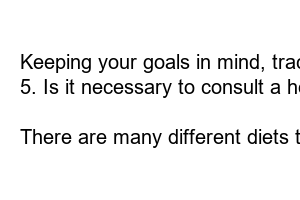스위치온 다이어트 식단표
Are you tired of feeling sluggish and unhealthy because of your current diet? Switching up your diet can have a huge impact on your overall health and wellbeing. **Changing your diet table** doesn’t have to be daunting or overwhelming if you approach it in a structured and manageable way.
**Why Switching Diet Table Can Benefit Your Health**
Improving your diet can lead to increased energy levels, better digestion, clearer skin, and even weight loss. By making intentional choices about what you eat, you can improve your overall quality of life.
**How to Transition to a New Diet Table**
Start by **identifying your goals** and motivations for changing your diet. Next, **research different diets** and find one that aligns with your lifestyle and preferences. Make a plan for **gradually incorporating** new foods into your routine and **eliminating unhealthy options**.
**Challenges to Consider**
Switching diet tables can be challenging at first, especially if you are used to a certain way of eating. **Cravings** and **temptations** may arise, but stay **focused on your goals** and remind yourself of the reasons why you decided to make this change.
**Tips for Success**
Stay organized with **meal planning** and **preparation** to ensure you have healthy options readily available. **Stay hydrated** and **listen to your body** to determine what foods work best for you. Remember that **progress takes time**, and be patient with yourself as you navigate this new journey.
**Seeking Support**
Consider reaching out to **friends or family** who can offer encouragement and accountability as you make these changes. Joining a **support group** or working with a **nutritionist** can also provide valuable resources and guidance.
**Summary**
Switching your diet table can be a positive step towards improved health and wellbeing. By setting goals, making a plan, and staying committed, you can successfully transition to a new way of eating that benefits your overall quality of life.
**FAQs**
1. How long does it take to see results from changing my diet table?
Results can vary, but many people notice improvements in their health within a few weeks of making dietary changes.
2. Will I need to give up my favorite foods when I switch my diet table?
You may need to make some adjustments, but there are often healthy alternatives that can satisfy your cravings.
3. Can I switch my diet table if I have dietary restrictions?
Yes, there are many different dietary options available that can accommodate a variety of restrictions and preferences.
4. How can I stay motivated when making these changes?
Keeping your goals in mind, tracking your progress, and seeking support from others can help you stay motivated throughout this process.
5. Is it necessary to consult a healthcare professional before making significant changes to my diet?
It’s always a good idea to consult with a healthcare professional, especially if you have underlying health conditions or are unsure about how to make the best choices for your body.
6. Are there any specific diets you recommend for individuals looking to switch their diet table?
There are many different diets to consider, such as the Mediterranean diet, plant-based diet, or ketogenic diet. It’s important to choose one that aligns with your goals and lifestyle.

